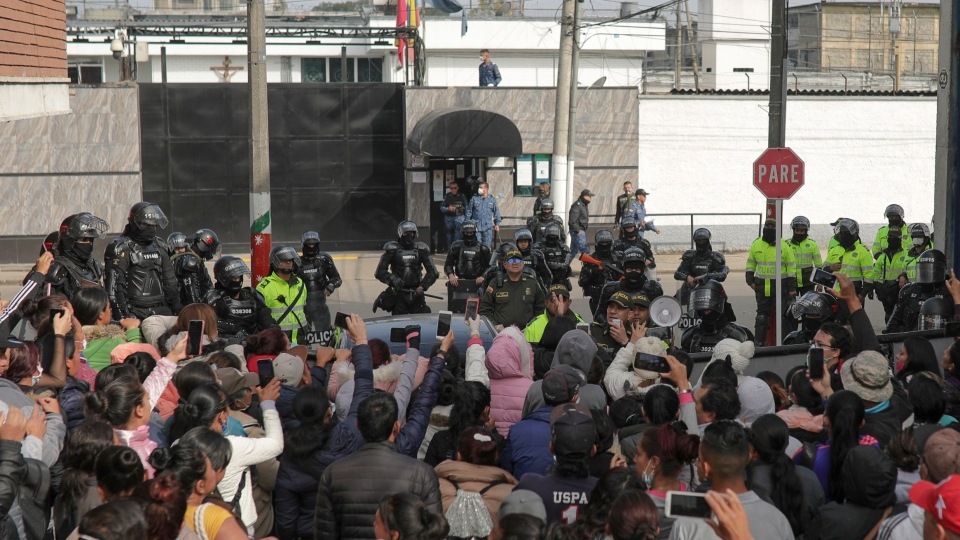RIO DE JANEIRO, BRAZIL – Over the weekend there were deaths during protests by prisoners in Colombia. A full account of the events is not yet available, as the prison administration (INPEC) has not yet released details.

Media reports of at least 23 dead, 83 wounded, 32 of them severely. They are hospitalized. INPEC reports of seven injured guards, two of them critically.
According to eyewitness reports and prisoners’ videos, there were massive riots in 14 prisons, mainly in the prisons of Bogotá, Boyacá, Antioquia, Jamundí, and Ibagué. These are high-security prisons.
The national prison movement, the prosecutor’s office, and the ombudsman’s office have been urging for several days that a state of emergency be declared in prisons.
Inmates in several prisons started a protest on Saturday against insufficient measures against the coronavirus within the detention facilities.
They are demanding improvements in prison conditions, the provision of sufficient water, as well as preventive measures and the supply of medication to ensure effective protection. In particular, women detained in Bogotá and Jamundí protested loudly in their cells with the banging of pots.
In the evening, serious clashes began as inmates escaped from their cells, some attempted to flee, others broke through cell walls and rioted against the prison administration.
INPEC officials, guards and security personnel tried to contain the riots through the use of force and firearms. This led to mass panic and attempted escapes. “This is war”, an inmate of the Jamundí prison said: “Nobody cares about us, they let us die or kill us on the spot”.

Meanwhile, the legal association ‘Equipo Jurídico Pueblos’ announced that even before the protests, police, and army surrounded the La Picota prison complex in Bogotá. Shortly after the protests began, the state armed forces attacked and flew over the region with military helicopters.
In addition, many inmates were shot at with firearms. Disproportionately large amounts of tear gas were used, which is forbidden in closed spaces. Most prisoners were locked up in their overcrowded and poorly ventilated cells at the time.
Twelve hours after the incidents, a Security Council met, in which a number of Ministries, INPEC and police took part. Subsequently, the Minister of Justice, Margarita Cabello, reported: “There were no breaches or outbreaks. There is also no health issue that justifies these riots. To date, there is not a single case of coronavirus infection.”
However, many detention facilities report of individuals with symptoms, both inmates and staff. Tests are not being carried out and are not yet planned by the prison administration.
Solidarity groups declared in a statement on Sunday: “Massive human rights violations are taking place in Colombian prisons, overcrowding exceeds 200 percent and the prisons do not even have the minimum hygiene protocols required at this time of the spread of the Sars Cov-2 virus”.
For ten days now, all visits to prisoners have been banned, allegedly to prevent infection. However, staff entering and leaving the detention facilities are not subject to any sanitary measures.
On Sunday evening the situation inside the detention facilities seemed to be under control. Family members and friends protested outside prisons in an effort to find out about the condition of their relatives.

